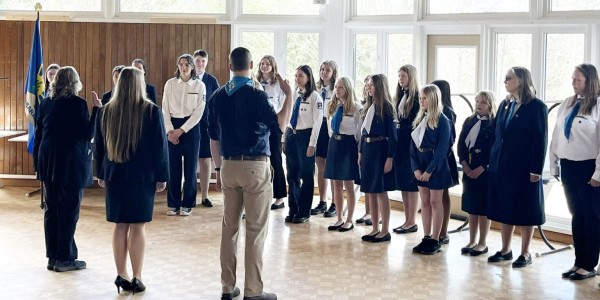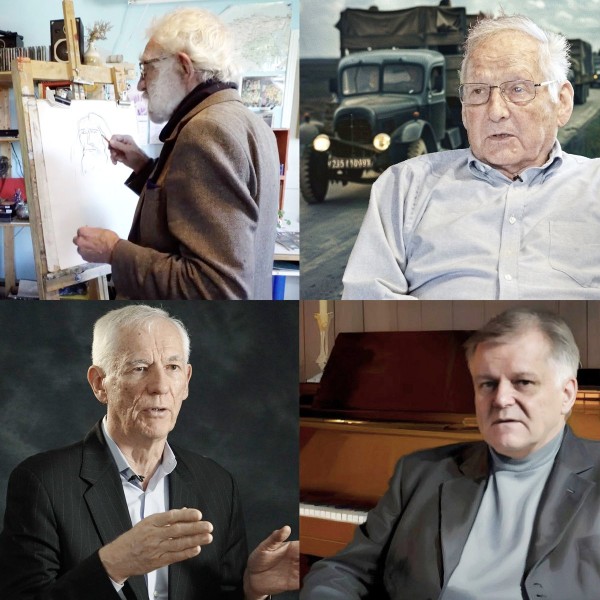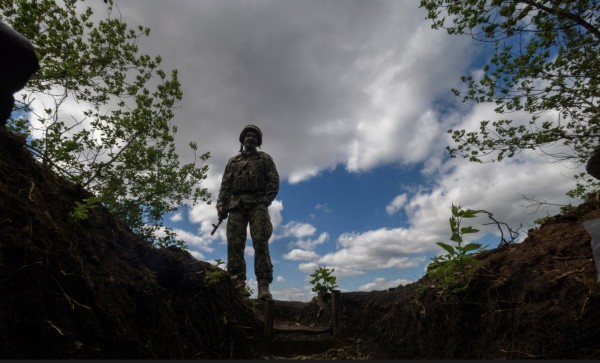We have seen many atrocity films from all groups of people, big and small, yet the slaughter of eastern Europeans, numerically and percentage wise greater than others, has not received due attention. Perhaps because the Soviet Union was allied with the west, perhaps because the Soviets kept a lid on all information denying it as they went along. When the iron curtain came down everyone was too busy getting on with their lives that the atrocities were swept under the carpet.
Now, however when Russians are making noise about claiming countries they once ruled and abused, it’s time to remind people just what exactly they did. When a Hollywood style motion picture with a name cast and top rate director came along we almost fell out of our chairs.
In the movie "The Way Back", directed by Peter Weir (Director of Master and Commander, Dead Poets Society, Witness), Ed Harris (Enemy at the Gates, The Truman Show), Colin Farrell (Miami Vice, S.W.A.T., The Recruit, In Bruges), Jim Sturgess (50 Dead Men Walking, The Other Boleyn Girl), and newcomer Polish female teen Saoirse Ronan are featured actors in a film about a group of prisoners that escape from a Siberian gulag in 1940 and then hike 4,000 miles to India and liberation.
The filming was done in India, Morocco and Bulgaria and the gulag (in this case 105 instead of Marcus Kolga's Gulag 113) was involved in (like Kolga's) cutting down trees. The group starts off with eight and finally ends with four. One went the other direction so three ended up in India.
The nationalty breakdown of the escapees was Polish, American, Russian and Latvian (no Estonians).
The film is based on the book "The Long Walk" by Slavomir Rawicz, who was a young Polish officer when he was processed through the Soviet "legal" system (which involved interrogation, brutal beatings and poor food) and sentenced to twenty-five years hard labour for ostensibly spying. While this was going on he kept wondering why the Soviet system was going through such pains to break a young twenty-four year old cavalry lieutenant.
At this point the film is only showing at the Varsity theatre, at 55 Bloor Street West, Toronto. If it is popular enough it might go into other theatres.

The Movie "The Way Back" - From Siberia, an Estonian’s perspective (3)
Eestlased Kanadas | 04 Feb 2011 | Adu RaudkiviEesti Elu
Viimased kommentaarid
Kommentaarid on kirjutatud EWR lugejate poolt. Nende sisu ei pruugi ühtida EWR toimetuse seisukohtadega.
The film is loosely based on the book. There was a little controversy as to the truth behind the story etc. and in the end, Weir is inspired by the stories of other names that come forward to give their account of their stories...
I love Weir as a film-maker, and will see the movie, although he does say that most of the film is fictitious...
http://www.bbc.co.uk/news/worl...
I love Weir as a film-maker, and will see the movie, although he does say that most of the film is fictitious...
http://www.bbc.co.uk/news/worl...
Sorry for all the typos above. Basically wanted to say that this film is not too "heavily" burdened by message, and that it is an enjoyable film -- a good plot, decent acting, and some piquant and majestic memorable moments of great beauty, joy and exotica that are typical of Peter Weir, the director's style.
There are moments in this film, artistically, that are alone worth going to see this film for. It is a good from beginning to end, but it has highlights some ethnographic moments, so piquant that the light up the world and remind us that each culture has incredible beauty, often hidden from the rest of the world. For example, there is the magical stark entry for just a minute or less of some Mongolian tribesmen on horseback and symbolic gestures that characterize their humanity, and also the outburst of childlike joy of Indian villagers greeting is a flash of great beauty typical of this film-maker's style. Peter Weir directed one of my favourite films, Witness, where he focuses with inspiring clarity on a community of Mennonites, where a cop, played by Harrison Ford, is forced to lay low for a few months. Weir gives credence to the exotic life of this community, and also a moment at the end where human decency is shown to have incredible power. He chose the subject matter for this Siberian escape film partly to reveal history. He does this by pointing out a few relevant facts so that even the most non-intellectually inclined person in the audience will absorb it. Great film to enjoy and also be grateful for, as it helps the cause of presenting lost chapters of a historical chain of events that must be remembered, else, if forgotten, it poses the possibility that it can be repeated in some form or other.
Eestlased Kanadas
TRENDING

























